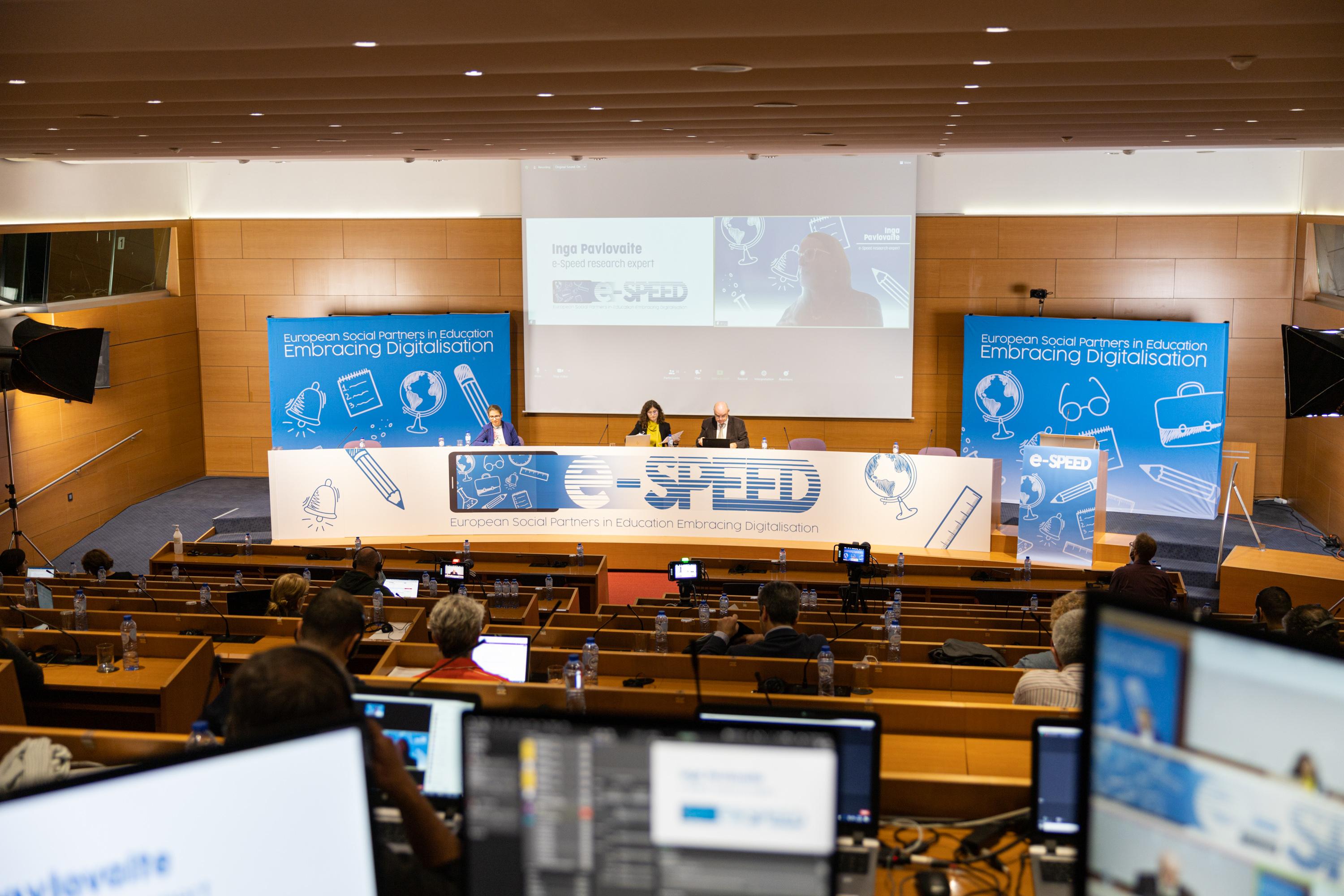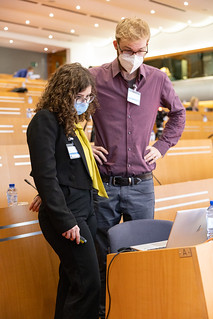‘E-Speed’ Project Final Conference: The challenges and opportunities of digital education
Published:
Education trade unions and education employers’ representatives from across Europe met on 14-15 October 2021 for the hybrid final conference of the joint social dialogue project ‘e-Speed – European Social Partners in Education embracing Digitalisation: Challenges and opportunities for European Trade Unions and Employer organisations in the digital era’ which aims at ensuring future-proof inclusive and quality education for all.
The conference took place in a vibrant atmosphere. The event, hosting internationally renowned experts in digital education, was coloured by fruitful discussions and insights. A wide range of project outcomes were presented to the participants. These included detailed reporting on the e-Speed research report, including the project survey and two case study visits in Denmark and Romania, as well as the premiere of the e-Speed project film.
After a presentation of the funding opportunities for education in the context of the Recovery and Resilience Facility and the Digital Education Action Plan, participants took part in an open discussion on the needs of teachers, academics and other education personnel to ensure an equitable inclusive and education-led recovery from the COVID-19 crisis. Education trade unions unanimously agreed that digital education is a tool, among many others, to support quality and inclusive face-to-face teaching and must, by no means, become the ultimate goal of education.
The first day of the Conference also featured ‘digitalisation in action’, a practical session which provided participants with concrete digital tools for education, such as the newly launched self-assessment tool ‘SELFIE 4teachers’ by the European Commission and the ‘Europe Code Week’, a bottom-up initiative which aims at involving teachers and students to bring coding and digital literacy in the classroom.
The second day of the event was dedicated to the importance of social dialogue on digital education. After an inspiring introductory key-note speech by the EU Commission's representative for social dialogue, education social partners worked together to provide recommendations for the draft ETUCE-EFEE Joint Statement on challenges and opportunities for education trade unions and employer organisations in the digital era, which is expected to be presented for adoption at the Plenary of the European Sectoral Social Dialogue in December 2021.
A high-level panel discussion on the state of Artificial Intelligence (AI) in Education addressed the pedagogical potential of AI, such as computer-enhanced language learning and ethical concerns of AI in education.

Concluding their first joint project on digital education, education social partners recognised the importance of collaboration and continuous social dialogue at European, national and regional level, in order to, together, shape inclusive and quality education for all.
Read more:
